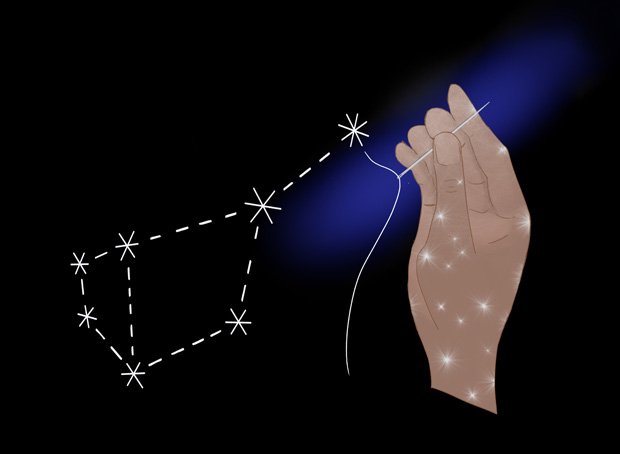Taking its name from the medieval lyric poem I Sing of a Maiden, Never None (but She) channels the pastoral charm and ye olde setting of this song into the modern day, by focusing on the contemporary issues of gender equality and sexism. The story tells the tale of three female fairy-like creatures – Lilla, Pan and Tansy – who are living in a world in which the stars are slowly but inexorably disappearing from the night sky.
Despite the environmental connotations of that premise, the narrative eschews that strand and leans far more towards the topics of women’s rights, by alleging that the only way in which the world can be saved is if our three protagonists relinquish their magical powers and submit to the better judgement of the men in their town. Tellingly, none of these men actually appear on stage, but through pre-recorded monologues and offstage goings-on we gather that the male contingent are a right set of bad bastards who are using the ongoing struggle as a means of subjugating their womenfolk.
While the ideas at the heart of Never None (but She) are both interesting and important and some of the means of communicating them original and thought-provoking, this over-simplification is the play’s biggest failing. There’s no room for nuance in a world where females must band together to break free of their shackles and wreak vengeance on their oppressors, giving the already shaky storyline little room to breathe. Some compelling questions are introduced, but none are answered all that satisfactorily – or even really given enough time or attention to develop beyond two dimensions.
But while there’s little meat on the bones of the narrative, there is maybe too much of it on the stage management and scene changing; each break is accompanied by elfin humming and a seemingly unnecessary rearrangement of props, which is charming at first but grows a little trying with repetition. On the other hand, an early dance sequence is effective in its visual representation of abuse, and for the most part the acting is understated and emotionally-charged. Anna Kiakowski as Lilla is the standout performer, imbuing her lines with warmth and humanity, but Olivia Hemmati and Isadora Baccon both acquit themselves well in the other leading roles.
All in all, Never None (but She) is an innovative take on an underpublicized subject and for that, the creative team behind it should be praised. Weaving together pressing contemporary issues with a folkloric aura is admirable, but the potential offered by the play is not quite met in its execution. As such, the attempt at an uplifting conclusion doesn’t quite feel earned, but it’s an entertaining enough piece of experimentation that warrants an hour of anyone’s time.
